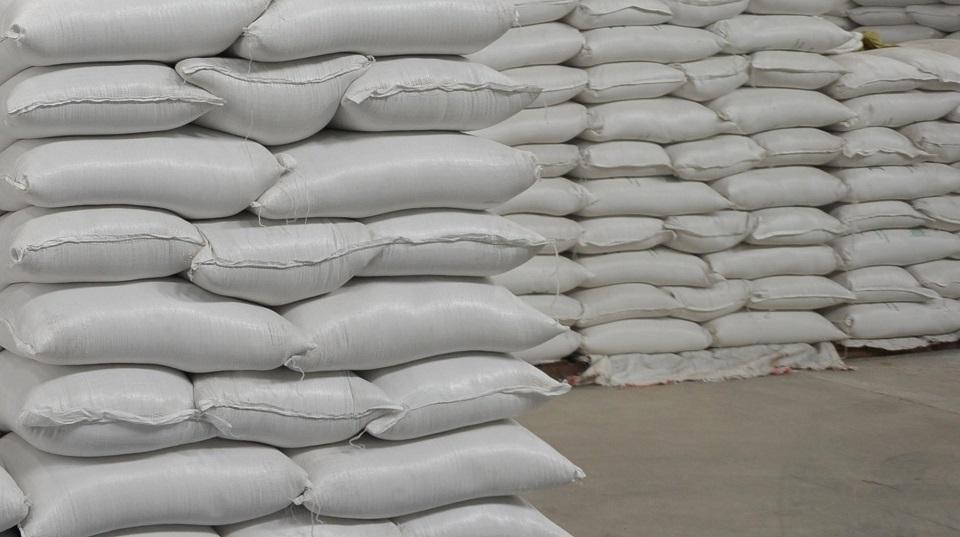DOF proposes temporary rice tariff cut to 0-10%, no toll hikes for agri-trucks

The Department of Finance (DOF) is proposing several measures aimed at stabilizing the rising rice prices, a situation that compelled the government to implement an unprecedented price control on the staple.
In his weekly press chat, Finance Secretary Benjamin Diokno said that the government needs to adopt a comprehensive approach to help ensure that rice supply remains sufficient at reduced prices.
With this, Diokno said the DOF has proposed "the reduction of the 35% rice import tariff rates, both ASEAN and MFN [most favored nation] rates, temporarily to 0% or maximum of 10% to arrest the surge in rice prices."
Pressed for details, the Finance chief said rice is the biggest contributor to inflation as he emphasized the need to propose a tariff reduction for rice imports.
Inflation, or the rate of increase in the prices of consumer goods and services, accelerated to 5.3% in August, faster than the 4.7% rate seen in July.
“Usually ang reduction is one year and puwede naman i-extend,” Diokno said, noting that the duration of the temporary cut on rice tariffs would be subject to a series of hearings.
The Finance chief added that the tariff cut could be implemented gradually, but also floated the possibility of an outright full rate reduction.
“May proposal na it should be gradual… e kung drastic ‘yung price increase, then pwede drastic yung [tariff cut]… d’i naman necessarily bad ang drastic,” he said.
As to the proposed tariff cut’s impact on local rice farmers, Diokno said, “In government, you think of the greatest good for the greatest number. Sino ba mas madami? Madami ‘yung consumers kesa sa farmers.”
The Finance chief said there is no need for legislation to temporarily cut tariffs.
“Puwede mo lang i-adjust pagka Congress is not in session. That’s the Constitutional provision,” Diokno said.
“We have to wait for the recess…Magre-recess na sila sa October,” he said.
Executive Order 39, which took effect on September 5, mandates a price cap of P41 per kilo for regular milled rice and P45 per kilo for well-milled rice.
The EO was approved by President Ferdinand "Bongbong" Marcos Jr. upon the recommendation of the Department of Agriculture (DA), which he heads, and the Department of Trade and Industry.
Exemption to toll hikes
The Finance chief said the DOF is also in coordination with tollway concessionaires and operators “for the temporary exemption of trucks that cater to agricultural goods from the increase in toll fees.”
For his part, Finance Undersecretary Zeno Abenoja said that tollway operators have already agreed with the proposal.
“The private concessionaires, they agreed with the proposal. They’re just trying to define the guidelines on how to identify these delivery trucks,” Abenoja said.
Diokno also clarified that the exemption only applies to the toll increase, meaning trucks catering to the agriculture sector would pay toll at prevailing rates prior to the recent adjustments.
“'Di ito mandatory, makikiusap kami. That’s the idea,” Diokno said.
Abenoja said the DOF sought the help of the Department of Transportation, the Toll Regulatory Board, and the Land Transportation Franchising and Regulatory Board to discuss the proposal with the tollway concessionaires.
“The discussions are ongoing,” the DOF undersecretary said.
Green lane
The DOF is also “encouraging the timely importation of rice by the private sector” to help address the rising rice price.
The Finance Department also proposed the “full implementation of the Super Green Lane that authorizes the use of Electronic Data Interchange that will allow for the advance processing and clearance of the shipments of the country’s topmost qualified importers.”
“There is also a need to curb non-competitive behavior in the rice industry by aggressively pursuing cases of hoarding, smuggling, and economic sabotage; strictly monitoring the prices of imported rice in the logistics chain; and encouraging the public, including retailers, to report individuals violating price caps on rice,” Diokno said.
“At the same time, we have to pursue programs to protect vulnerable sectors by safeguarding our farmers from the effect of the price ceiling; provide targeted subsidies to small traders and retailers of rice; and provide support to low-income households to address the impact of the surge in rice prices,” he added. — BM, GMA Integrated News




